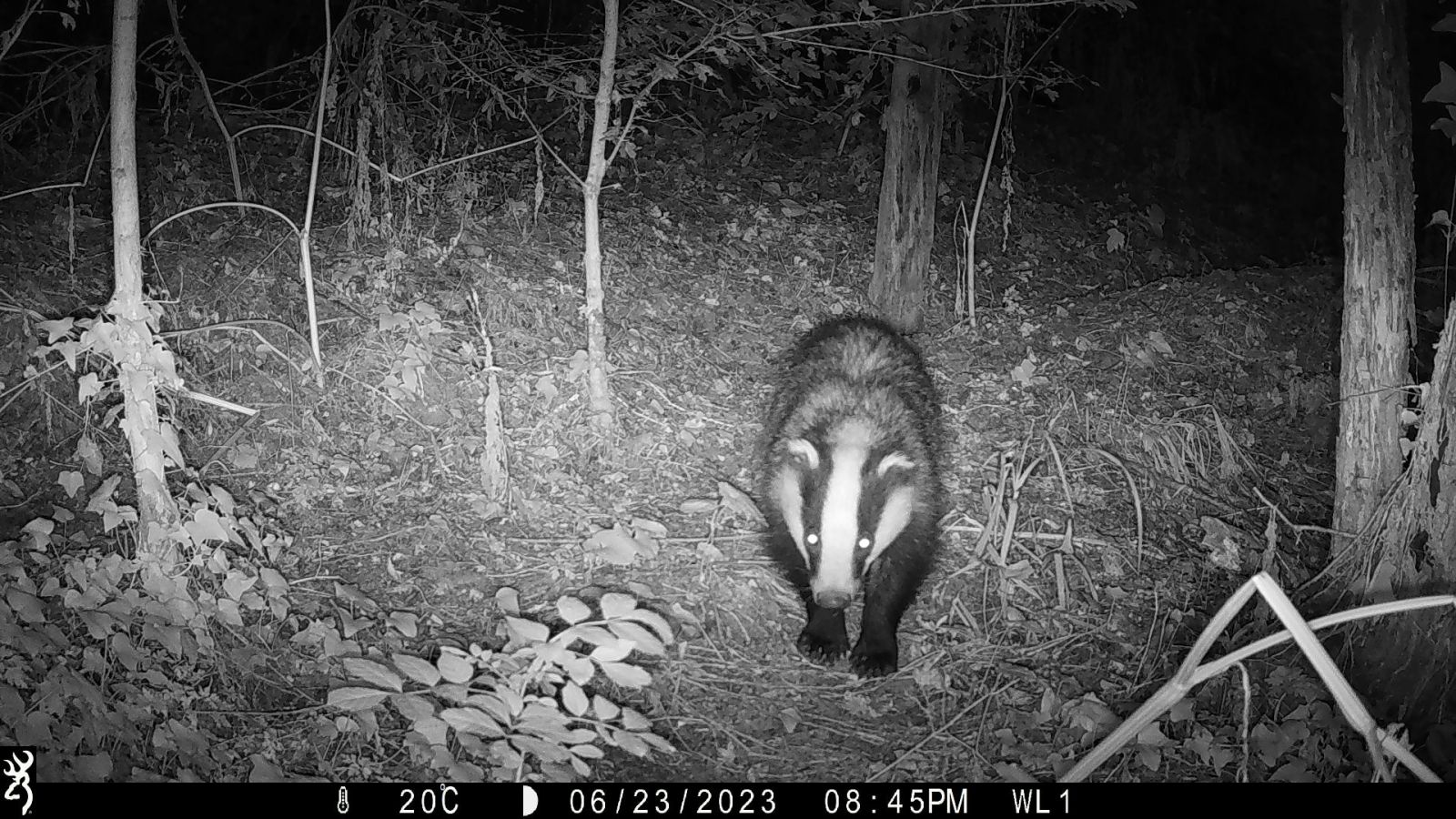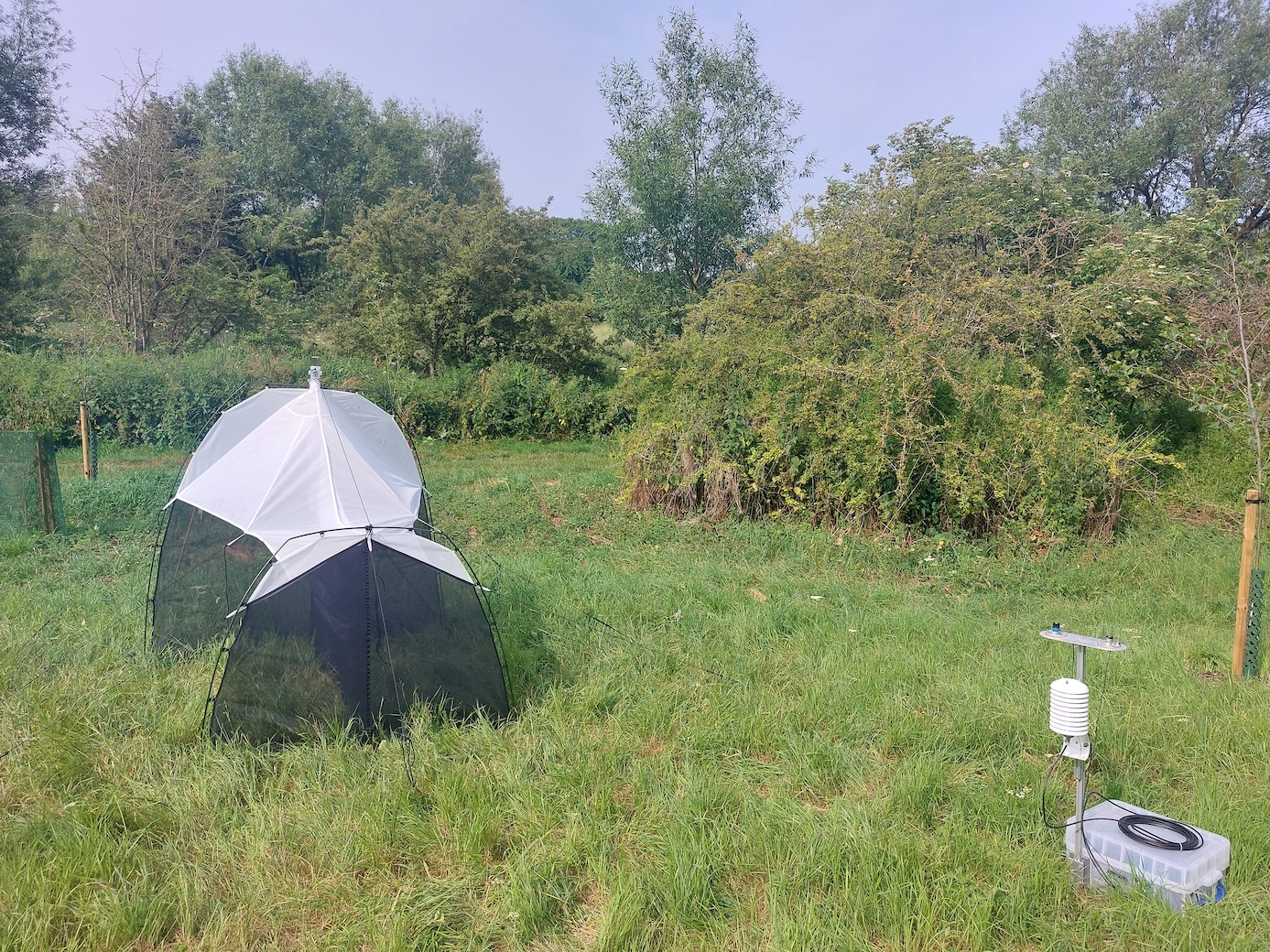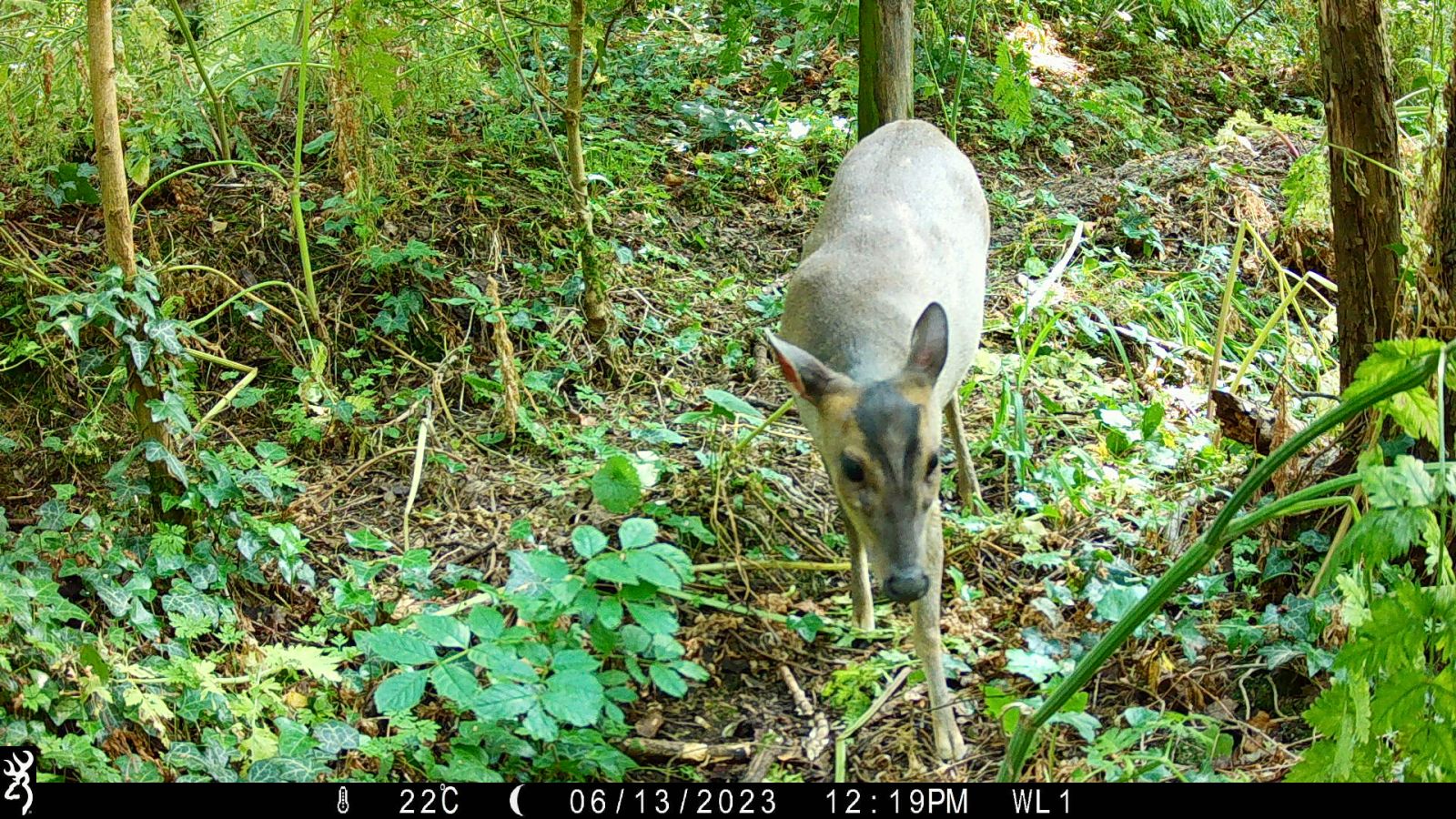 The Weston Open Living Lab was established by the OU in 2022 through a lead grant from the Garfield Weston Foundation to develop a platform for the education, research and public engagement on nature recovery and nature-based solutions to nature crises. Focussing on the intertwined issues of climate change and biodiversity loss, we will use innovations in the physical and digital space to develop resources and provide content for our students across modules, as well as for public engagement activities with schools and community groups. A part of the Living Lab activities, we are monitoring biodiversity through a range of approaches in different ecosystem types on the campus. These include using camera traps to monitor wildlife, which have been set up in an urban woodland stand and in a site where we are establishing a new riparian woodland on land next to the River Ouzel that runs adjacent to Walton Hall.
The Weston Open Living Lab was established by the OU in 2022 through a lead grant from the Garfield Weston Foundation to develop a platform for the education, research and public engagement on nature recovery and nature-based solutions to nature crises. Focussing on the intertwined issues of climate change and biodiversity loss, we will use innovations in the physical and digital space to develop resources and provide content for our students across modules, as well as for public engagement activities with schools and community groups. A part of the Living Lab activities, we are monitoring biodiversity through a range of approaches in different ecosystem types on the campus. These include using camera traps to monitor wildlife, which have been set up in an urban woodland stand and in a site where we are establishing a new riparian woodland on land next to the River Ouzel that runs adjacent to Walton Hall.
 We will soon add acoustic loggers to capture birdsong and bat calls. We have also been selected as one of 100 sites nationwide to join a project call BIOSCAN, that is being run by the Sanger Institute, which aims to classify the genetic diversity of 1,000,000 flying insects across the UK. For this, we make monthly collections of flying insects over a 24-hour period using ‘Malaise traps’, in both the riparian woodland site and an adjacent floodplain meadow.
We will soon add acoustic loggers to capture birdsong and bat calls. We have also been selected as one of 100 sites nationwide to join a project call BIOSCAN, that is being run by the Sanger Institute, which aims to classify the genetic diversity of 1,000,000 flying insects across the UK. For this, we make monthly collections of flying insects over a 24-hour period using ‘Malaise traps’, in both the riparian woodland site and an adjacent floodplain meadow.  So far, on our camera traps, we have captured animals you expect to see in urban environments such as foxes, squirrels and different rodents, but also less common animals such as deer, badgers and a buzzard. We have also captured some interesting behaviour, including a magpie tackling a crayfish from the river. It is not clear whether the magpie has caught this itself or managed to steal it from another animal that caught it– a strategy known as kleptoparasitism. Over time we will develop a large database of biodiversity observations from these different methods and will be able to monitor the seasonal variations and how these change in response to the establishment of new habitat at the riparian woodland site.
So far, on our camera traps, we have captured animals you expect to see in urban environments such as foxes, squirrels and different rodents, but also less common animals such as deer, badgers and a buzzard. We have also captured some interesting behaviour, including a magpie tackling a crayfish from the river. It is not clear whether the magpie has caught this itself or managed to steal it from another animal that caught it– a strategy known as kleptoparasitism. Over time we will develop a large database of biodiversity observations from these different methods and will be able to monitor the seasonal variations and how these change in response to the establishment of new habitat at the riparian woodland site.

 We will soon add acoustic loggers to capture birdsong and bat calls. We have also been selected as one of 100 sites nationwide to join a project call BIOSCAN, that is being run by the Sanger Institute, which aims to classify the genetic diversity of 1,000,000 flying insects across the UK. For this, we make monthly collections of flying insects over a 24-hour period using ‘Malaise traps’, in both the riparian woodland site and an adjacent floodplain meadow.
We will soon add acoustic loggers to capture birdsong and bat calls. We have also been selected as one of 100 sites nationwide to join a project call BIOSCAN, that is being run by the Sanger Institute, which aims to classify the genetic diversity of 1,000,000 flying insects across the UK. For this, we make monthly collections of flying insects over a 24-hour period using ‘Malaise traps’, in both the riparian woodland site and an adjacent floodplain meadow. 
